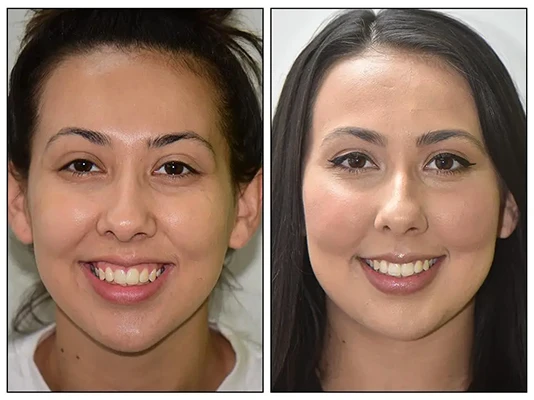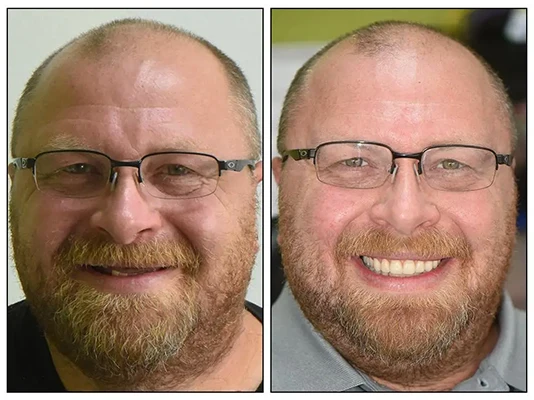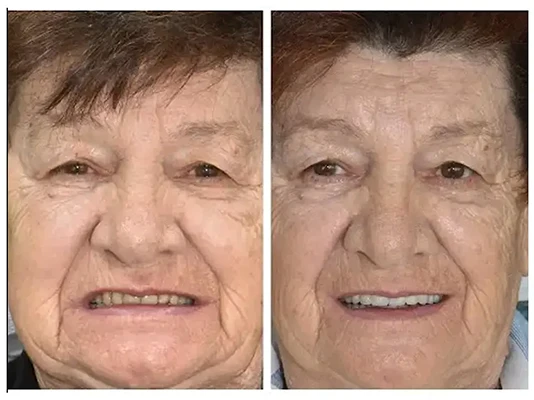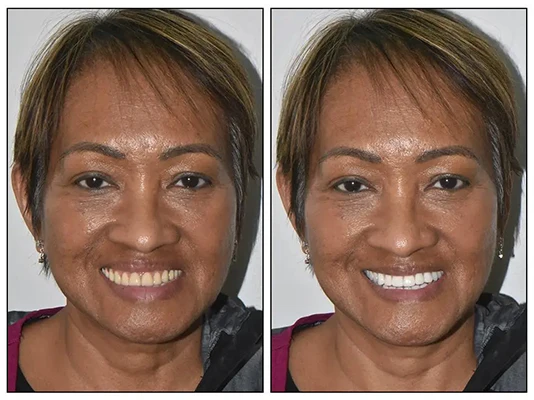Root Canal Therapy in Wheaton IL

A root canal treatment is an essential endodontic procedure that serves as a lifeline for severely damaged or infected teeth. At Arden Dental Center, we understand the significance of this intricate process in restoring dental health and relieving excruciating pain. The term "root canal" may evoke anxiety, but it simply involves addressing problematic issues within the tooth's structure to save it from extraction.
Often caused by enamel breakages or cracks, root canal infections in Wheaton IL can wreak havoc on oral health if left untreated. With our expertise and advanced techniques, we meticulously remove the damaged portions of the tooth while ensuring utmost care and precision in cleaning and disinfecting the affected canal. Finally, we skillfully fill and seal the restored area to prevent further infection or complications.
Trust us at Arden Dental Center in Wheaton IL to provide precise root canal treatments that will give your smile a new lease on life.
Professional Care For Root Canal in Wheaton IL
Root Canal Therapy or RCT, is a dental surgical technique where a hole is made in the affected tooth to gain access to the infected pulp that lies underneath. At that point, depending on the nature of the infection, antibiotics may be applied to clear the infection. The pulp itself may be removed if the infection is too severe, or other techniques may be used.
It is important to get proper RCT from a professional once you have been diagnosed with infected roots or pulp because, without treatment, this can lead to:
- Infection - When bacteria penetrate deep into the tooth through cavities or cracks, they can cause infection in the pulp chamber. A root canal primarily treats infected or decayed pulp within the tooth. Infected fluids can drain into the gums, spreading the infection further or even penetrating the cheek.
- Toothache - Severe toothaches often result from inflamed or infected pulp. By performing a root canal and removing the damaged tissue causing the ache, our dentist aims can alleviate this discomfort.
- Abscess Formation - An untreated infection may spread into nearby tissues, forming an abscess or pus-filled sac at the tip of the roots. Root canal therapy aims to eliminate the infection and prevent further damage.
- Sensitivity - Heightened sensitivity to temperature changes in teeth might indicate underlying issues in their internal structures. Conducting a root canal helps address this problem.
In every case, the outcome is the same; ignoring the problem will simply make it grow larger and potentially infect much more of your mouth, face, and head. But, with a proper diagnosis of the problem, a few RCT techniques can be employed depending on the severity of the infection. Some of the procedures that can be employed are:
See Our Results
Pulpectomy
In the less serious cases, only a partial root canal, or pulpectomy needs to be performed. This is a two-step process. The first visit will give access to the pulp to administer antibiotics and ensure that the infection is eliminated in other parts of your mouth and confined to the pulp.
Once your mouth has recovered somewhat, the next step is to remove the infected pulp, then thoroughly clean, disinfect and fill the formerly infected canal.
Apicoectomy
In cases where an infection is more severe and goes beyond the root tip, a dentist may suggest an apicoectomy. The root tip, tissue, and apical infection are treated, requiring a much larger area to be opened in your tooth. Once the treatment has been completed, a biocompatible, rubbery, plant-based material known as Gutta Percha is used to fill in space and seal the tooth from bacteria and possible reinfection.
Steps Involved In A Root Canal Procedure
A root canal procedure in Wheaton IL is a dental treatment performed to save a severely infected or damaged tooth from extraction. It involves several meticulous steps, each crucial for the success of the procedure.
Initial Examination
- The dentist will begin by conducting a thorough examination using X-rays to assess the condition of the affected tooth and surrounding tissues.
Anesthesia
- Once it is determined that a root canal is needed, local anesthesia will be administered to numb the area. This ensures that the patient remains comfortable.
Isolation
- To maintain optimal cleanliness and prevent contamination during the procedure, a rubber dam will be placed over the patient's teeth, isolating only the tooth being treated.
Accessing the Pulp Chamber
- Next, the dentist will create an access point into the pulp chamber of the affected tooth through which all of the infected tissue will be removed.
Removal of Infected Tissue
- Specialized instruments called endodontic files will be used to thoroughly clean out all infected dental pulp from within the tooth's roots and canals.
Irrigation
- Throughout the procedure, a sterile solution (usually sodium hypochlorite) will be used as an irrigant to flush out debris and disinfect the canals thoroughly.
Filling and Sealing
- Once cleaned and shaped properly, the root canals will be filled with a biocompatible material called gutta-percha to prevent reinfection from occurring in the future.
Restoring the Tooth Structure
- After completing a root canal procedure, the structural integrity of the tooth is typically restored by placing either a dental crown like CEREC crown or filling over it.
Typically, root canals are recommended by a dentist after a thorough examination. However, if you haven’t visited a dentist for quite some time and are experiencing unusual amounts of pain in your tooth, the infected pulp may be the problem. To discuss your endodontic concerns or if you need more information, visit Arden Dental Center at 531 E Roosevelt Road, Suite 100, Wheaton, IL 60187, call us today at (630) 529-0303, or schedule an appointment online.
Arden Dental Center
531 E Roosevelt Rd STE 100
Wheaton IL 60187
(630) 529-0303
OFFICE HOURS
Monday
9:00am - 5:00pm
Tuesday
9:00am - 3:00pm
Wednesday
9:00am - 5:00pm
Thursday
10:00am - 6:00pm
Friday
8:00am - 1:00pm
(One Friday A Month)
Saturday
8:00am - 1:00pm
(Every Other Saturday)
Sunday
Closed




